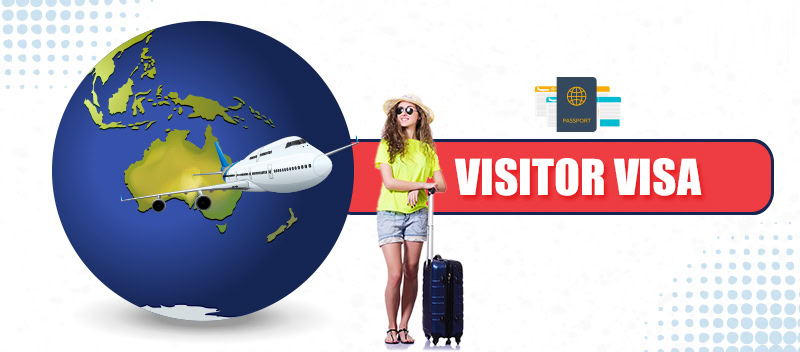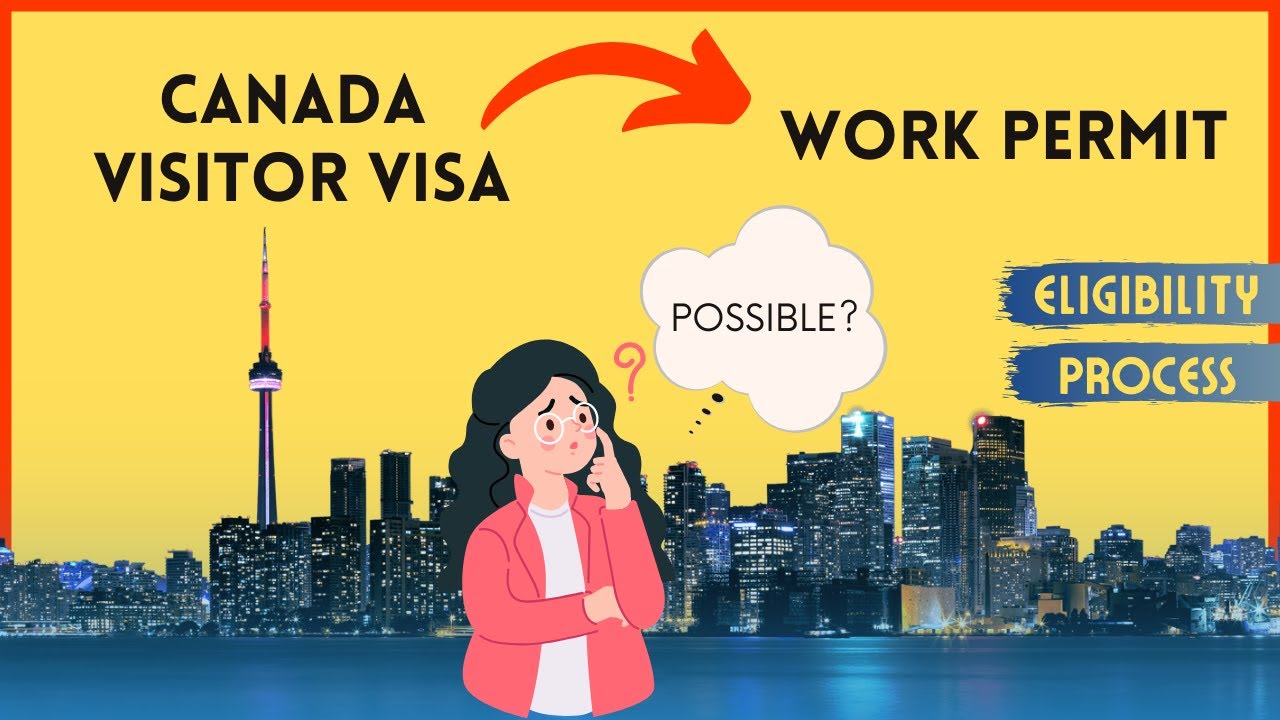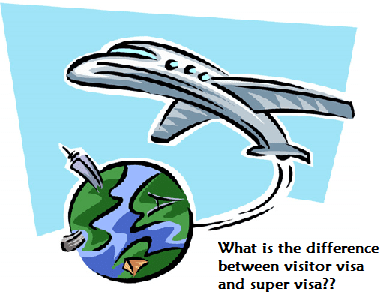What is the Difference Between a Visitor Visa and Super Visa
Visitor Visa vs. Super Visa
Since the Super Visa program was introduced in November 2011, there has been some confusion between what are the specific differences between Super Visas and Visitor Visas. What adds to the confusion is that a Super Visa is essentially a form of Visitor Visa and shares some of the same conditions.
This article will provide an outline of some of the most important differences between the two types of visa. We will compare Visitor Visas and Super Visas in the following categories: Purpose, Validity, Single Entry or Multiple Entry, Cost, and Requirements.
What is the Purpose of Visitor Visa and Super Visa?
A Canadian Visitor Visa’s main purpose is for tourism. It implies that the person coming to Canada will be here temporarily and is not going to attempt to work or remain in the country beyond the period validated for his or her stay.
A Super Visa’s main purpose is to allow parents or grandparents of Canadian citizens or permanent residents to come into the country and visit their children or grandchildren on an extended basis.
Both a Visitor Visa and a Super Visa share a common trait: both are temporary. Despite the Super Visa allowing extended periods of visitation, the stay in Canada is still limited and both applicants of Visitor and Super Visas must intend to return to their country of origin.
What is the Validity of Visitor Visa and Super Visa?
A typical Visitor Visa will be valid for a period of 6 months. This period of validity might be less depending on the applicant’s circumstances and the discretion of the immigration officer. The Visitor Visa can be extended for an additional period of 6 months, but it is recommended that the applicant apply at least 1 month before the current Visitor Visa expires.
For foreign nationals from visa-exempt countries, you may only receive a stamp on your passport when you enter Canada on a Visitor Visa. Even if it is not explicitly stated, you are required to either exit the country after 6 months or take steps to renew your visa from inside Canada.
A typical Super Visa will be valid for a period of 2 years. The Super Visa is multiple entry for a period up to 10 years. The Super Visa can also be extended for an additional period of 2 years, and should be applied for at least 1 month before the current Super Visa validity expires.
Single Entry Visa or Multiple Entry Visa
The current policy for Visitor Visas is that the immigration officer should grant a multiple entry visa for any applicants who are eligible. However, it is possible to receive a single entry Visitor Visa in special circumstances (for example, an applicant who is participating in a one-time event in Canada).
Super Visas are always classified as multiple entry visas.
What is the Cost for Visitor and Super Visa Application?
The cost for applying for a Visitor Visa or a Super Visa is identical: $100. However, this can be deceptive. Beyond the government processing fee, each type of visa has specific costs associated with it
A Visitor Visa application is $100, and depending on your country of origin you may need to pay an additional $85 for biometrics as well. The cost seems relatively minor, but the long term costs can become quite high if an applicant wishes to remain in Canada. Every time a Visitor Visa extends their visa status, they will need to pay another processing fee of $100. Considering that a Visitor Visa is only valid for 6 months, an applicant will need to pay at least $400 in government fees over a period of 2 years.
A Super Visa application is also $100, and again, depending on your country of origin you may need to pay an additional $85 for biometrics as well. The advantage in terms of cost is that a Super Visa does not need to be renewed as often as a Visitor Visa. Unfortunately, there are other hidden costs with a Super Visa that should be factored in to the overall cost:
- Medical Insurance Coverage: In order to submit a Super Visa application, the parents or grandparents must have a minimum of one year of medical insurance coverage from a Canadian insurance company. The insurance policy must provide minimum coverage of $100 000. While in Canada, parents or grandparents must have an active Canadian medical insurance policy.
- Proof of Medical Examination: In addition to the medical insurance coverage, parents or grandparents applying for a Super Visa will be required to submit results of a medical examination form a Panel Physician designated by Citizenship and Immigration Canada. A list of Panel Physicians can be found here: http://www.cic.gc.ca/pp-md/pp-list.aspx. If this documentation is not submitted with the initial application, immigration will eventually request it. The average cost for a medical exam from a Panel Physician ranges from about $150 to $250.
What are the Visitor Visa and Super Visa Requirements?
Forms
A Visitor Visa and Super Visa use the same set of forms provided by Citizenship and Immigration Canada. These forms are:
- IMM 5257 – Application for Visitor Visa
- This form requests information for Personal Details, Language, Contact Information, Details of Visit to Canada, Education, Employment, and Background Information
- IMM 5257 – Schedule 1
- This is an additional form requesting details for Previous Travel, Membership in Organizations, etc.
- IMM 5707 or IMM 5645 – Family Information
- The form completed depends on the applicant’s country of origin. The Family Information form requests details of your immediate family (relationship, address, marital status, etc.)
- IMM 5409 – Common-Law, IMM 5476 – Use of Representative, IMM 5476 – Designated Individual
- These forms are optional but may be required depending on the circumstances of the application.
Purpose of Visit
The purpose of an applicant’s visit is an important factor when an immigration officer is examining a Visitor Visa application. For a Super Visa application, the purpose of the visit is already implied by the fact that the parents or grandparents are being invited to stay with their children or grandchildren.
Financial Resources
When applying for a Visitor Visa, the applicant will need to show that he or she has access to the financial resources necessary to sustain his or her stay in Canada. Documents that will suffice as proof may include:
- Bank statements
- Recent paystubs from an employer
- An employment letter stating duration of employment and salary
- A letter of invitation from a Canadian host (pledging financial support or accommodations)
For a Super Visa application, the requirements for financial resources are much more specific than those for a Visitor Visa. The parents or grandparents applying may provide documentation as mentioned above to show what financial resources they have. However, the children or grandchildren who are going to host must agree to a financial undertaking as well. The children or grandchildren must have enough financial resources to meet the minimum of the Low Income Cut Off. The Low Income Cut Off chart for 2016 (retrieved from www.cic.gc.ca) is displayed below:
| Size of Family Unit | Minimum Necessary Income |
| 1 person (your child or grandchild) | $24,328 |
| 2 persons | $30,286 |
| 3 persons | $37,234 |
| 4 persons | $45,206 |
| 5 persons | $51,272 |
| 6 persons | $57,826 |
| 7 persons | $64,381 |
| More than 7 persons, for each additional person, add | $6,555 |
Meeting the Low Income Cut Off is mandatory and documentation must be provided by the children or grandchildren which proves that the minimum has been met for the one year period before submitting the Super Visa application.
Documentation proving that the relevant Low Income Cut Off has been met may include:
- A Notice of Assessment for the most recent tax year. This can be obtained from Revenue Canada.
- A recent copy of a T4 or T1 slip
- A letter of employment indicating duration of employment as well as salary
- A record of recent paystubs
- Bank account statements
- Documents showing investments, property ownership, etc.
As you can see, a Super Visa application requires not only the applicants but also the inviting Canadian citizens or permanent residents to qualify. In essence, a Visitor Visa has less requirements and the onus is on the applicant to meet them.
Contact Akrami and Associates
It should be clear that Visitor Visas and Super Visas each have advantages. It is safe to say that if possible, parents and grandparents planning to make an extended visit to Canada should apply for a Super Visa instead of a regular Visitor Visa. The requirements are stricter but the benefits are worth it in the long run.
If you are planning on applying for a Visitor Visa or Super Visa, it is important that you provide all of the necessary forms and documentation. Your application should be as complete as possible so that the immigration officer is satisfied that you meet the requirements. The legal professionals at Akrami & Associates are ready to help you with all of your Canadian immigration matters.
With Akrami and Associates there is always a way!!
Latest Immigrations News

March 17, 2025
Bringing Your Girlfriend to Canada: From Visitor Visa to Spousal Sponsorship
Bringing Your Girlfriend to Canada: From Visitor Visa to Spousal Sponsorship Embarking on the journey in bringing your girlfriend to Canada involves understanding the intricacies of immigration processes. Let's explore how you can obtain a visitor visa and then transition into spousal sponsorship, acknowledging that experiencing life together [...]

November 6, 2024
Canada Visitor Visa
Canada Visitor Visa The Canada Visitor Visa, also known as a Temporary Resident Visa (TRV), is intended for individuals who wish to enter Canada temporarily for tourism, visiting family and friends, or business meetings. This visa allows you to stay in Canada for up to six months, depending [...]

June 18, 2024
Visitor Visa to a Work Permit in Canada
Visitor Visa Application and Transitioning to a Work Permit in Canada Canada, with its stunning landscapes, multicultural cities, and welcoming environment, attracts millions of visitors each year. Many who come as tourists fall in love with the country and wish to extend their stay or even transition to [...]

Book a Conslutation
One of our Representatives will
assist you with your matter. Book Now!
Click here

Call us for
more Information
+1-416-477-2545
Toll Free: 1-877-820-7121
Click here

Write Us (Online Form)
Complete our form and one of our
Representatives will contact you.
Click here
Subscribe To Our Newsletter


